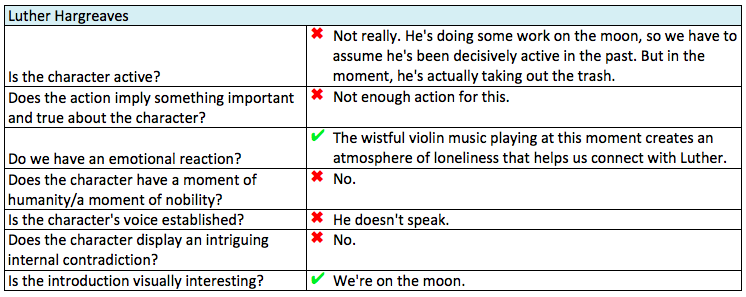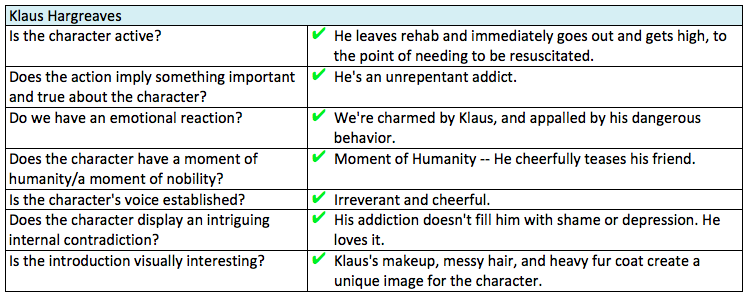
How important is a character introduction, really? Maybe you have a lot to cover in the first few scenes. Can’t you just get rolling on the plot, and trust your readers to bond with your characters a few steps down the road?
To explore this, let’s look at The Umbrella Academy, as adapted for Netflix. The first ten minutes of the show serve to introduce the premise (eccentric billionaire adopts and raises kids with super powers) and the five surviving members of the Umbrella Academy: Vanya, Diego, Luther, Allison, and Klaus. Most of these introductions serve up a spreadsheet that looks like this:

Rather than give these characters voices, or actions to perform, the writers chose to go for a combination of Visual Interest + Evocative Music for most of the introductions. It’s not boring, but it doesn’t do much to help us understand the characters. The one exception is Klaus.

On paper, he’d seem like the least interesting of the Academy members—he’s not a movie star, an astronaut, or a vigilante. He’s a druggie in rehab. But he’s the only one who is active, establishes his voice early, and displays an internal contradiction.
Of these five characters, Klaus remained my favorite throughout the season. Is this because of the good introduction? Or is it the other way around— maybe he has a good introduction because he’s an interesting character, and gave the writers more to work with?
Either way, I think pushing yourself for that killer intro is important, every time. Maybe it brings your awesome character work forward and begins the bonding process between reader and character. Or maybe it pushes you to discover or invent greater problems and internal contradictions for your characters.
If the writers of this episode had pushed themselves, they might have written brief intros that capitalized on these internal contradictions:

I enjoyed the heck out of this show. But intros like these, I would have loved to see.
